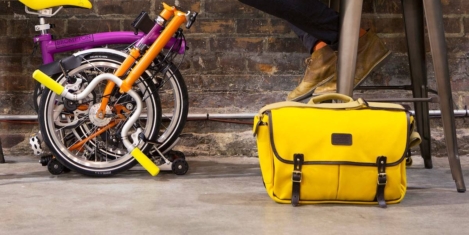November 20, 2017
Average worker now spends 27 working days a year commuting, finds TUC
Commuters are now facing an average 58-minute daily journey – the equivalent of 27 working days a year, according to a TUC analysis. Getting to and from work now takes an extra 5 minutes a day compared with a decade ago – the equivalent of an extra 20 hours a year spent on congested roads and packed trains. The number of workers facing very long commuting times (over 2 hours) has gone up by 34 percent over the last 10 years, with 3,291,012 now facing very long journeys. Rail commuters face the longest journeys, taking an average of 2 hours and 12 minutes every day – an increase of 4 minutes on the last decade. Drivers spend 52 minutes on the road to work and back (up by 4 minutes), while bus commuters must set aside 39 minutes a day (up by 7 minutes). Cyclists (43 minutes) and walkers (30 minutes) have the quickest daily journeys.









 Work is the biggest barrier to taking regular exercise a new survey suggests, with 20 percent of people citing being too busy with work as the reason why they are not more physically active. The research, which is published by not-for-profit health body ukactive to mark today’s National Fitness Day 2017 also reveals that only 1 in 10 adults (12 percent) know NHS recommended physical activity guidelines and well over half of Brits spend at least six hours each day sitting down. In addition to shunning exercise, more than 64 percent of adults spend at least six hours each day sitting, be it at work, in front of the TV, commuting or on social media. The average UK adult also spends more than twice as much time sitting on the toilet as they do exercising, with the study of 2,004 British adults by ComRes reveals that British adults say they are on the loo for an average of 3 hours and 9 minutes each week, compared to just 1 hour and 30 minutes spent doing moderate exercise such as fast walking or riding a bike.
Work is the biggest barrier to taking regular exercise a new survey suggests, with 20 percent of people citing being too busy with work as the reason why they are not more physically active. The research, which is published by not-for-profit health body ukactive to mark today’s National Fitness Day 2017 also reveals that only 1 in 10 adults (12 percent) know NHS recommended physical activity guidelines and well over half of Brits spend at least six hours each day sitting down. In addition to shunning exercise, more than 64 percent of adults spend at least six hours each day sitting, be it at work, in front of the TV, commuting or on social media. The average UK adult also spends more than twice as much time sitting on the toilet as they do exercising, with the study of 2,004 British adults by ComRes reveals that British adults say they are on the loo for an average of 3 hours and 9 minutes each week, compared to just 1 hour and 30 minutes spent doing moderate exercise such as fast walking or riding a bike.

















August 14, 2017
Seven ways in which flexible working is making our lives more rigid
by Mark Eltringham • Comment, Flexible working, Technology
(more…)